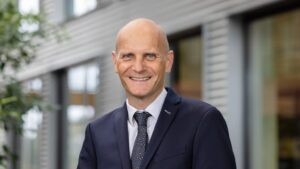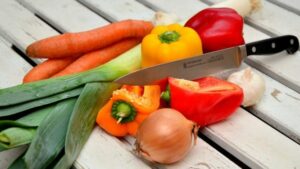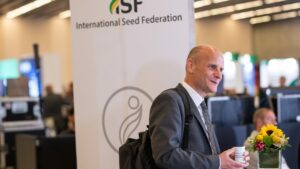Gaining the public’s trust — especially when it concerns new plant breeding innovations — isn’t always easy.
According to the Pew Research Center, people’s perception of how much genetically modified (GM) food they eat is often seen as a benchmark for the public’s familiarity with GM foods. In the U.S., just 11% of Americans estimate that most of the food they eat has GM ingredients, while another 40% say some food they eat as GM ingredients. Forty-eight percent of the American public believe they do not eat GM foods.
Even though most vegetable companies don’t even work in the GM-realm, Vicente Navarro, senior vice president of BASF’s vegetable seed business and vice-chair of ISF’s value chain coordination group, says it’s still difficult to convince the public to give them a “license to operate.” It depends on how the society and the consumers of the world look to our industry as a solution or as a troublemaker.
“The concept of having a license to operate has to do with businesses conducting business with society,” Navarro says.
The industry’s job, Navarro says, is to convince society that the seed industry is a solution. The difficulty, however, comes in with the messaging.
One way ISF has been working to change society’s view on agriculture is by telling a more compelling story of the seed industry.
“We have to share our contributions in a better way,” says Marco van Leeuwen, managing director of Rijk Zwaan and vice president of ISF. “ISF is working on a series of videos in tandem with seed companies to elaborate on best practices.”
Another way ISF is improving the seed sector’s message is through their “Seed Resilience” campaign.
“Seed Resilience is a concrete action plan about how seed can better contribute to the SDGs,” he says. “In addition, we’re reaching out to several stakeholders and partners about Seed Resilience to bring our messages across.”
The key to this campaign is establishing a network of experience and knowledge based on one key message outlined through the campaign.
“There are a lot of views and a lot of things already happening,” van Leeuwen says. “This way, stakeholders outside of the seed sector know where to go when they have questions.”
The points of the Seed Resilience Campaign are:
- Initiating and contributing through partnerships on Seed Resilience.
- Setting up a renewed dialogue based on data collection on sustainable seed systems and their contribution to the SDGs.
- Building a flagship project with partners for a sustainable seed system based on inclusiveness in a country.
- Publishing a best practice guide on access to improved varieties and sustainable crop management.
ISF is bringing these four points forward to stakeholders at the World Seed Congress in Barcelona and will continue to bring these pieces forward until 2030, when van Leeuwen says the industry should hopefully have reached a large extent of the SDGs.
In addition, this campaign will help the seed sector obtain their “license to operate.”
“We need to advocate for the positive aspects the seed industry brings to our food systems. In this context, we are also asking for a science-based approach for regulations,” Navarro says. “Such an approach would ensure a level playing field for all plant products, irrespective of the methods used in their development.”
“For me, communicating the many good things we do, the challenges we have, and the solution for it is imperative. There is a planet to feed,” says Navarro
Bringing New Solutions to the Table
Though the challenges to breaking through to society about the seed industry solutions are difficult, both the vegetable seed sector and ISF have taken up the torch.
Navarro says this starts by becoming more active with the food value chain.
“We need to try and partner and establish much stronger a dialogue with any potential partner that shares our goal,” he says. “This starts by reaching out and investing more in science and innovation.”
Innovation, Navarro says, is the basis of the seed sector, but it needs to fit in the industry in a sustainable way. This also means keeping the seed and genetics pool diverse will be imperative for the future.
“There are thousands of different kinds of tomatoes for different purposes, areas and cultures,” he says. “Keeping diversity or increasing diversity that we do through our breeding programs will play an important role for future generations.”
Ensuring both access to seeds and genetics will keep crop diversity alive and mitigate issues as the seed sector continues to innovate for disease and pest control as well.
In addition, looking at sustainability and carbon differently is another major change for the industry to make.
“Approximately 35% of greenhouse gas emissions on the planet are related to agriculture,” he says. “We need to think of ways to produce less CO2. In vegetables, you can think about minimizing that by introducing new varieties or even producing vegetables closer to the consumer — which would lower the impact in transportation.”
The UN and FAO report that 35% of greenhouse gas emissions come from agriculture, however, the USDA reports that it’s closer to 10.5%. Regardless of which statistic you use, there’s room for improvement.
For ISF, ensuring a sustainable future is step No. 1.
“The world is changing in terms of demand,” says van Leeuwen. “We need to build something altogether that feeds this planet and its population for the long term by overcoming all these challenges and anticipating trends and developments.
“The beautiful thing is that, as a breeding industry and seed industry, we have solutions for many of those challenges,” he says. “Most things are not for tomorrow, but for the longer term. We are here on this planet, and we need to make things infinite, despite what is happening around the world.”
Related Articles:
https://european-seed.com/2022/05/seed-quality-improvement-relies-on-farmer-feedback/
https://european-seed.com/2022/05/isf-tackles-communication-through-a-new-structure/













